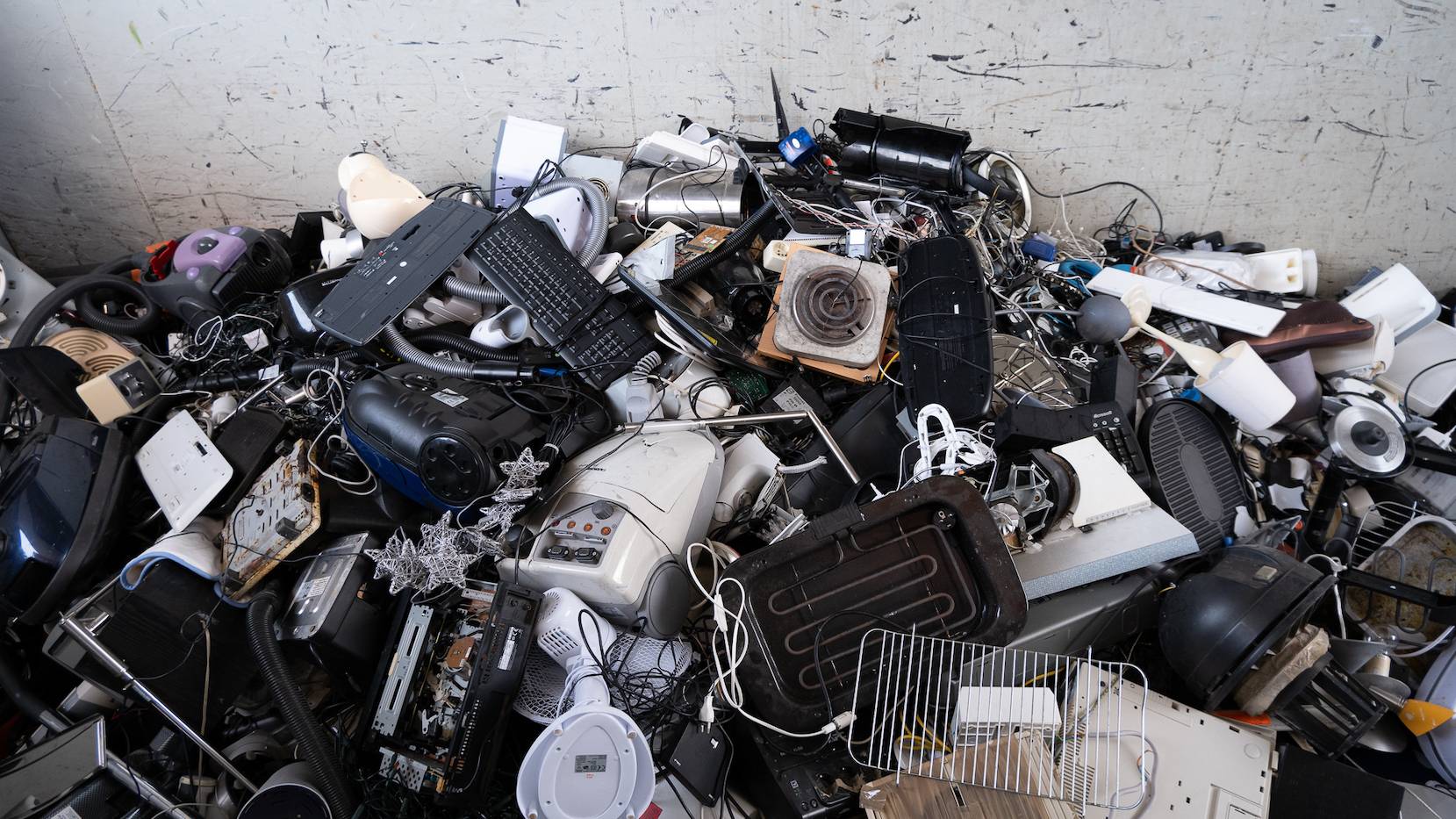Old electrical appliances Returning old toasters etc. made easier through amendment to law
Bonn · An amendment of the Electrical and Electronic Equipment Act came into force on 1 January 2022 regulating dealers’ obligation to take back old goods. Consumers should now be able to return old appliances more easily and free of charge. The changes in the law mainly affect online trade and supermarkets.
Since the start of 2022, a revision of the Electrical and Electronic Equipment Act is making it easier for consumers to return old electrical equipment to dealers. The background is to collect and recycle the raw materials in discarded electrical appliances, explains Jérôme Lefèvre, press spokesman for the municipal waste management company Bonnorange. Not much will change for Bonn retailers for the time being, but for some wholesalers the revised law will mean additional work. One change affects online trade in particular. Just like high-street retailers, online dealers are now obliged to take back old electrical equipment “if the total size of sales, storage and shipping areas for electrical and electronic equipment is at least 400 square metres”, Lefèvre wrote. The rule does not apply to traders with fewer than 400 square metres.
Small appliances must be collected
Previously, online retailers often offered pick up old appliances or equipment for a fee, Bonnorange explains. They are now obliged to collect certain categories including refrigerators, monitors or large household appliances, free of charge when a similar new product is bought. As Bonnorange explains, dealers must now take back appliances in smaller categories and with dimensions of less than 25 centimetres free of charge either themselves or in cooperation with parcel services. This will mean additional work for some companies. “The workload for us retailers is not insignificant and will be increased by the amendment of the law,” explains a press spokesperson for electronics retailer Media Markt. The company could not answer GA’s question about how many old appliances have been collected in the Bonn shop since January.
Rules for storage areas over 400 square metres
Media Markt offers various return options for online purchases: “When the goods are delivered by a transport company, the old equipment is taken immediately. If goods are shipped in a parcel, the odd appliance is collected later by a service provider,” the spokesperson says. Smaller appliances can be returned to the shop after the online purchase. Certain basic rules apply to wholesalers whose combined shop and warehouse space exceeds 400 square metres: According to Bonnorange, retailers must take back old appliances with an edge length of up to 25 centimetres regardless of a new purchase. If the old appliance exceeds these dimensions, dealers only have to take back the old appliance in exchange for the purchase of a new appliance of similar size.
Wholesaler accepts appliances of any size
The electronics wholesaler Conrad does things differently: according to the company's press office, it accepts old appliances of any size in its shops voluntarily and free of charge. In the course of buying an “equivalent product” online, customers can have larger old appliances collected. Similar to Media Markt, the appliances are stored professionally until a certified service provider collects and disposes of or recycles them. Another change in the Electrical and Electronic Equipment Act concerns supermarkets with a sales area of at least 800 square metres. Bonnorange says that since the beginning of the year they have to take back old appliances from consumers free of charge if they offer electrical appliances several times a year. According to a Rewe press spokesperson, the take-back obligation for supermarkets will be implemented by 1 July at the latest. The implementation of the law is still being prepared and Rewe stores are not yet taking back electrical appliances. The same applies to Aldi. The discounter is also still working on a suitable concept and is not currently taking back equipment, their press office explains.
No obligation for smaller retailers
Smaller retailers with sales areas of less than 400 square metres are still not obliged to take back old electrical appliances, Lefèvre said. Some, including Herbert Parton's electrical engineering company, offer to take them back voluntarily for a surcharge. Parton is not worried about the new regulations. “In the last two years, requests for the disposal of old appliances have increased significantly,” he says, explaining that customers appreciate the service combined with installation and delivery of a new appliance. Parton gives the old appliances to the recycling centre or to a scrap dealer. An alternative is the red bins Bonnorange offers to smaller dealers, Lefèvre said. Employees and customers can dispose of small electrical appliances in them.
In other retail sectors, too, companies are focusing on recycling strategies. Since October last year, customers at C&A in Bonn have been able to return old clothing to the shop in exchange for a discount voucher, a spokeswoman explained. The company then sells or recycles the textiles through various partners. The programme is well received by customers in Bonn: “Every day we have at least 2 to 3 boxes that we send to be recycled. That’s about 30 to 40 kilogrammes of clothing.”
Originalartikel: Christine Van den Bongard
Translation: Jean Lennox



